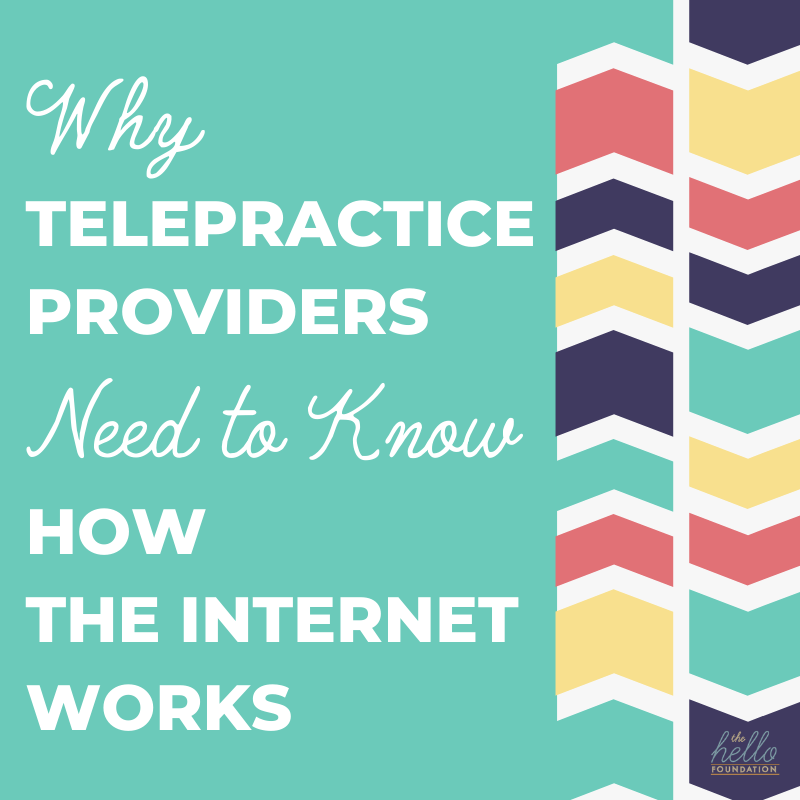An important part of our telepractice training for clinicians focuses on technology, including hardware, software, and the workings of the internet. There are sometimes questions about why this is necessary. Clinical skills are at the heart of my job. Our scope of practice already includes so many populations, settings, and disorders. Why do SLPs need to know how the internet works??
Solving Problems and Identifying Risks
When you work in a building, you may do your therapy in an office, a classroom, a hospital room, or even a hallway. Throughout the day you move between your therapy space and other shared spaces like the lunchroom, the restroom, etc. You likely have interactions with colleagues, administrative personnel, and the public. If you’ve been working at this location for any amount of time, you have probably gained knowledge other about the setting, e.g. how many other people work there, where the closest coffee shop is, or where to find alternate exits.
This kind of knowledge helps you manage any unexpected circumstances that arise. You can handle a double-booked space, an onsite emergency, or trying something outside your normal routine.
Just as we need to know our way around a building, understanding the resources and hazards, we also need to know our way around the internet. It’s amazing that you can click a link and magically find your client in a shared video space, but in the long-term, you may need more knowledge about your digital workplace. The more you understand about how computers find and communicate with each other on a network and how resources are accessed on the internet, the more prepared you will be to solve problems, identify risks, and react appropriately when issues arise.
Increasing Your Quality of Service
When you are with your clients, you are the expert, regardless of whether you’re in physical or virtual space. In the brick-and-mortar service delivery world, you are constantly using what you know about your surroundings to better meet the individual needs of your clients. We tinker with our environments so that they are optimized for client success — making accommodations in the summer months to account for how the late afternoon sun heats up the room, adjusting the lighting for a client who is sensitive to the flickering of fluorescent bulbs, investigating what that strange squeaking sound is on the other side of the wall, and so on.
Experience with technology and understanding of the internet can help your clients in many of these same ways. You are your client’s immediate resource when they are frustrated with the technology because even if you have access to an IT department, they probably aren’t sitting next to you. The more you understand about how things work, the more likely it is you’ll be able to offer your client helpful suggestions in the moment and be able to present new technology tasks in a straightforward manner. You’ll be able to refine your system so that it’s the best it can be and maximize the time you spend focusing on therapy targets.
How would you judge your knowledge of the internet? How do you gain the skills that help you solve problems for your telepractice clients?






